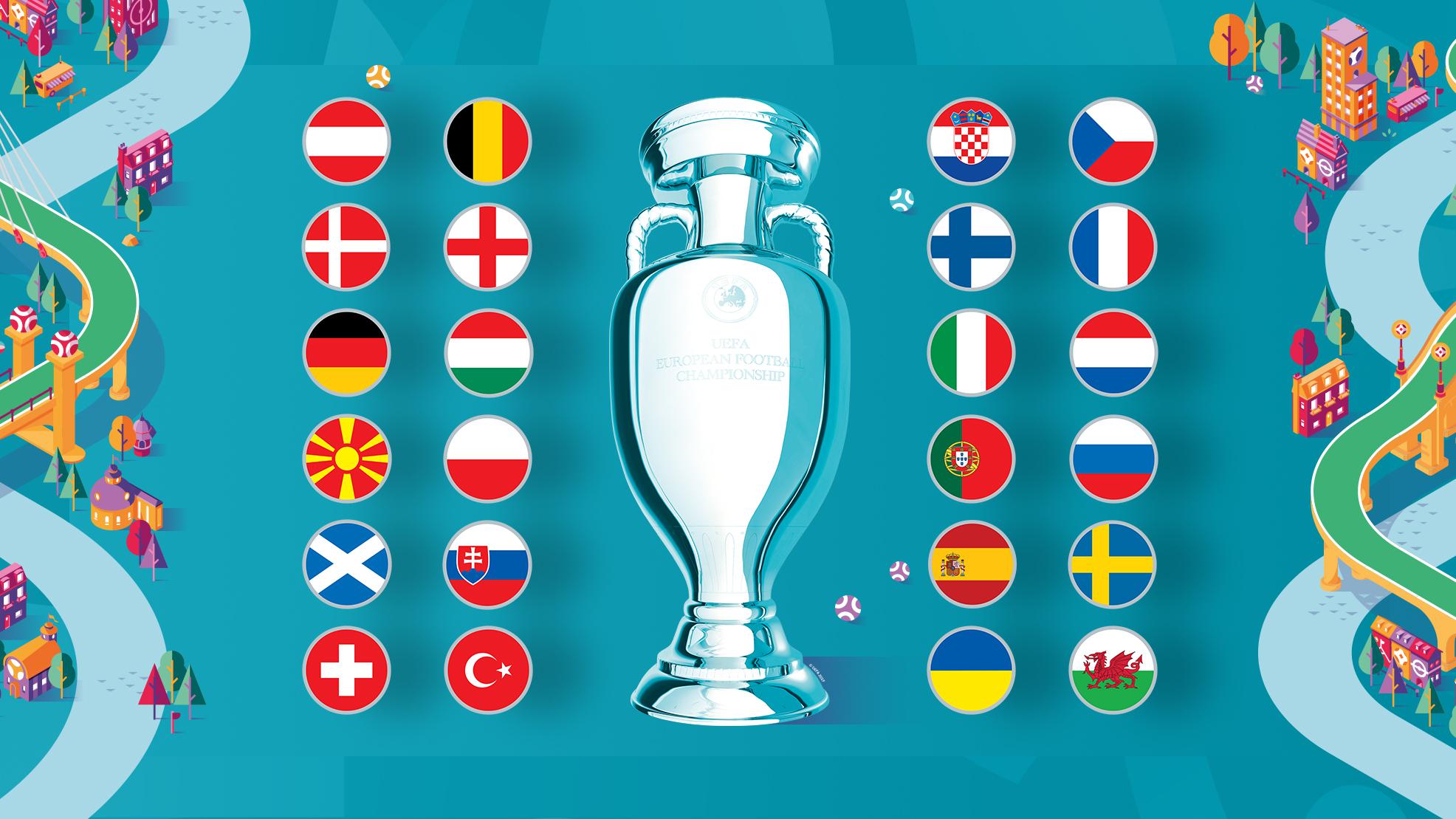The rearranged Euro 2020 tournament is now under a month away as UEFA get set to finally celebrate the 60th anniversary of the competition. Last March, it was announced that it had been put on hold until the summer of 2021 but will still be known as ‘Euro 2020’.
The rescheduled tournament is currently slated to kick-off on Friday, June 11, 2021 with Rome’s Stadio Olimpico staging the opening match between Turkey and Italy.
Once the group stage is done, the Round of 16 will begin on June 27, with the quarter-finals a week later on July 2. And after the semi-finals on July 6 and 7, the winners will be crowned on Sunday, July 11 at Wembley.
England manager Gareth Southgate said during the international break that he already knows his starting XI for the Euro 2020 opener against Croatia, but whoever he selects in goal will define how he expects his team to play this summer.
For Didier Deschamps, the three games France played during this international break were not so much about trying to qualify for the 2022 World Cup, something France will surely do from a group containing Ukraine, Finland, Bosnia & Herzegovina and Kazakhstan. It was more about giving the opportunity to some players before the summer.
The warning signs were there after Germany suffered their heaviest-ever loss, 6-0 to Spain in the Nations League in November. But wins in the last week over Iceland (3-0) and Romania (1-0) allowed coach Joachim Low — who will quit after Euro 2020 — to come up for air as it looked like he had stabilized the team.
Luis Enrique was stuck in a lift for over an hour and almost didn’t make it to the dugout for kick-off of Spain’s meeting with Kosovo in Seville on Wednesday. Given how things had gone in the previous two games, he might have preferred to stay stuck instead of watching what his side was doing — he admitted in his prematch media appearance that he didn’t expect the game to be that good — but as it turned out, it was an improvement. Spain had drawn their first game of this international break, 1-1 with Greece, and then needed a very late and rather fortunate goal from Dani Olmo to beat Georgia in the second. The third, a 3-1 win over Kosovo, ended the break on a high note.
Roberto Martinez is a happy manager. His Belgium side beat Wales (3-1) and Belarus (8-0), either side of a hard-fought 1-1 draw in the Czech Republic. Now the Spaniard can start thinking and planning for the Euros, the Nations League semifinal against France in October and even the 2022 World Cup, though he has a hard task on his hands.
Since taking the job in 2018, manager Roberto Mancini has assembled a slick, young side that continue to impress as they extended their unbeaten run to 25 games over the March break. At the back, they have one of the best goalkeepers around in Milan’s Gianluigi Donnarumma, with Juve stalwarts Giorgio Chiellini and Leonardo Bonucci in front of him: the Azzurri have not conceded a goal for four matches.
Ronald Koeman led Netherlands to the Nations League final and European Championships qualification before taking the Barcelona job, but his successor, Frank de Boer, is having a hard time matching that success. In fact, their 4-2 defeat in Turkey brought back memories of the short managerial stints of De Boer at Inter Milan and Crystal Palace.
Portugal have been attempting to become less reliant on Cristiano Ronaldo’s goals ever since winning Euro 2016. Ironically, they won that tournament with the Juventus forward forced to watch the majority of the victory over France on the sidelines due to an injury sustained in the early stages of that final. With the 36-year-old now within just six international goals from equaling former Iran striker Ali Daei’s world record of 109, it’s perhaps unsurprising that Ronaldo has been at the forefront of Portugal’s recent goal output, with 18 coming since the start of 2019.
